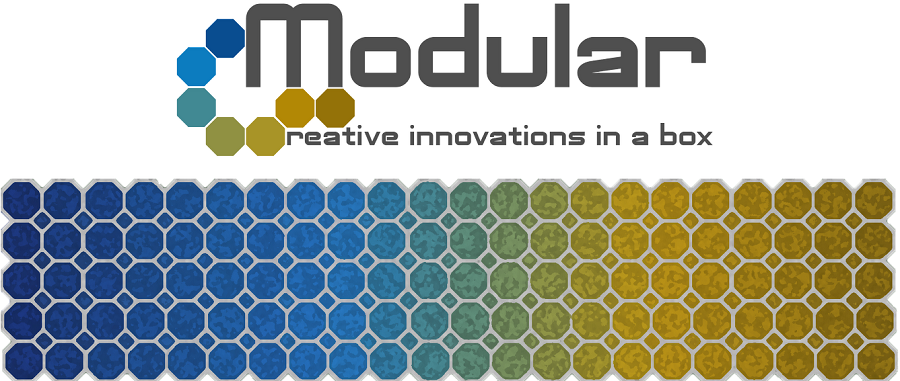The predominant approach to low-income communities across Africa of making charity donations of cash and equipment is fundamentally misdirected, and leads to theft, corruption and laziness, according to founder of South African startup Modular Innobox Hasan Darwish.
Increasingly, Darwish says non-profit organisations are realising that a far more fruitful way of engaging with low-income communities is to support the creation of self-sustainable projects which in turn result in skills development, job creation, and contribute to economic development.
And so, with a solid background in industrial engineering and applied ethics, Darwish has developed a new way of empowering low-income communities to start their own businesses and projects, with his Modular In-boxes.
Modular In-boxes see technology integrated in to pre-used shipping containers, to make low-cost, customisable, standalone business units, which are solar powered, internet connected, have payments functionality, and collect statistics.
“Modular Innobox designs, manufactures and pilots modular businesses inside shipping containers in rural and low income communities for a variety of clients. Our models cater to a variety of social and business opportunities in the field of education, entertainment, transportation, retail (spaza and formal), health services, government services and e-commerce. Typically, our units are designed to provide dual social and business functions to encourage sustainability,” Darwish explains.
Darwish says his Modular In-boxes address the charity misdirection, by providing communities with “incentivised assets”. By gaining community interest and requiring direct engagement and commitment on the part of members of the community, Darwish says sustainable impact can be achieved.
“There is a major misdirection in businesses approaching low income communities in the right way. This is currently done by donating money or computers to charities which usually come from Corporate Social Investment (CSI). This is largely incorrect because it is repeatedly found that such donations create liabilities rather than assets,” Darwish says.
“Many non-profit organisations are starting to see that creating self-sustainable initiatives is the best way to create jobs and facilitate economic growth, and they need to create a vision and strategy to achieve those initiatives,” he explains.
“Starting businesses, sustainable projects and skills development programmes are all assets which the community can benefit from. However, donating expensive computers, giving money in the form of cash or grants creates liabilities for theft, corruption and plain laziness. Incentivized assets are the best way to gain community interest, buy-in and ensure a sustainable project in low-income communities.”
A key challenge for low-income communities is access to services, Darwish says. Specifically, this segment of the population still requires a myriad of services, but does not have the luxury of trialling and testing a variety of options. As such, solutions – such as the Modular In-box – which provide complete, packaged services are very effective.
“A dominant preconception is about the community members themselves and their use of services. Many companies have given up on attracting such a market because they believe that the community members are simply not interested or informed enough to decide. Besides being a negative way of looking at almost 80 per cent of the world’s population, it shows that the problem was most likely not properly considered,” Darwish says.
“Low income communities need services, but the problem is that they truly cannot afford to waste money by trying out different services. The main problem is that products do not necessarily need to be cheap, which is often achieved by reducing quality, they need to be affordable and relevant. If the BoP [base of pyramid]community can see direct value in the offering given to them they will easily convert to and most likely become loyal to it,” he says.
Modular In-boxes can be customised to meet the demands of almost any business or social project, Darwish says; while the startup has also sought to make their units as eco-friendly as possible by making use of pre-used containers and materials and ensuring minimal waste.
In addition, high-end technology is integrated into the units from the beginning, with community support made available to educate about technology and ways of implementing tech solutions for maximum impact.
“We utilize top end technologies produced at the Innovation Hub and elsewhere around the world. This is because we don’t want to follow the traditional model of introducing technology slowly, rather we want to bring the best technologies right away and work on educating the community about them,” he says.
“For example we have a Netatmo Weather Station, Snap Circuit Set, Hitachi Interactive Projector, face detection cameras, fingerprint loggers and more that allow us to test all types of things. Every device in our units can be controlled remotely and collects statistics about its operation. This allows us to provide the community with continuous support and educational content. It also allows us to improve the design with time.”
Modular Innobox is currently working with three companies, two government departments and a number of businesses to design and implement In-boxes. The startup has already had a turnover of ZAR500,000 (US$39,600) in its first year, and is looking to grow this to ZAR3.5 million (US$277,250) in its second year.
The focus for now, is to ramp up production, Darwish says.
“The next step is to set up a production facility and expand the number of units. This facility will build more of the existing units and test new units.”


